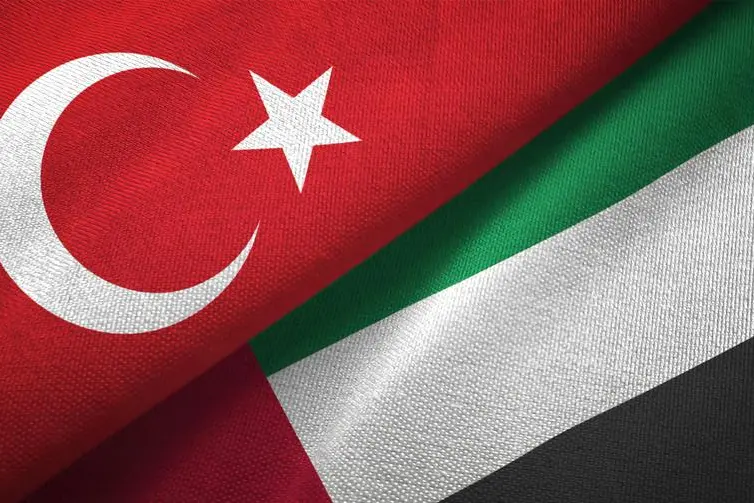PHOTO
As Turkey's Recep Tayyip Erdogan wins the presidential election, defeating opposition leader Kemal Kilicdaroglu in Sunday’s runoff vote, the UAE will look forward to strengthening its trade relations with Ankara.
"Erdogan's victory will ensure continuity in planned economic and trade cooperation," said Aathira Prasad, Director, Macroeconomics, at the Dubai-based consultancy Nasser Saidi & Associates.
The two countries signed a Comprehensive Economic Partnership Agreement (CEPA) in March, which aims to increase bilateral trade to $40 billion over the next five years, from about $19 billion currently. The UAE is also seeking to eliminate or reduce customs duties on more than 93% of the value of non-oil trade as it looks to gain access to more markets.
"As the UAE seeks to diversify, Turkey would be an important market to tap," Ajit Karnik, Professor of Economics at Middlesex University in Dubai, told Zawya.
"Turkey is possibly the biggest economy in the region. In 2021, its GDP was $1.131 trillion, which was much larger than that of Saudi Arabia ($672 billion). So, the removal of trade barriers will open a huge market for the UAE," said Karnik.
As testimony to the warming relations between Turkey and the UAE, the GCC country set up a $10-billion investment fund in 2021 to support investments in Turkey.
"For the UAE, the CEPA with Turkey will support its diversification efforts - both in terms of expanding into new emerging markets (i.e. trade partners) and an increased focus on the non-oil sector," Prasad told Zawya.
The CEPA, which is expected to be ratified later this year, is set to focus on strategic sectors such as AgriTech, food security, and clean energy, as well as cooperation on construction and real estate projects.
"The UAE is likely to push for greater cooperation on newer, up-and-coming avenues such as clean energy and adoption of digital technologies, including AgriTech, alongside the usual suspects of real estate and construction," Prasad added.
The UAE, the second-biggest economy in the GCC and the third biggest oil producer within OPEC, is committed to diversify its revenue streams. Last year, the UAE approved a slew of policies aimed at accelerating the country's transition to a circular economy, as part of its push towards sustainable economic development.
Turkey is now the UAE's sixth largest trading partner for non-oil trade with bilateral trade hitting $18.9 billion last year, up 40% from the previous year, according to official figures.
In 2021, close to two-thirds of UAE's exports to Turkey was gold and jewellery, followed by metals including aluminium at close to 10%, according to Prasad.
Turkey's depreciating currency
However, Erdogan's economic policy of holding interest rates low to spur growth has seen the lira lose more than 90% of its value over the past decade. Indeed, on Monday, following Erdogan's win, the Turkish currency touched a fresh record low of 20.10 to the dollar. This is seen as a cause for concern for potential foreign investors.
"There has to be a concerted effort from Turkey's part to convince foreign investors: the lira has already dipped to a record low of 20 to the dollar and the central bank’s net foreign reserves are already in negative territory (first time since 2002). Unless the central bank raises interest rates, the currency will likely fall further - an unsustainable option for the medium-term and a worrisome prospect for investors," said Prasad.
In 2022, to improve trade, the UAE and Turkey signed a currency swap agreement with value of 18 billion dirhams ($4.9 billion) or 64 billion lira. If Erdogan's policy of low rates continues, and the lira continues depreciating, there will be consequences, unless "they have agreed to a reverse swap at a pre-determined exchange rate," said Karnik.
"If suppose, after a year, the lira depreciates so that 1 dirham = 4 lira, the value of 64 billion lira will fall to 16 billion dirhams. It will help Turkey to pay for imports from UAE in dirhams, but one should remember that a depreciation of the local currency always makes imports more expensive, even though the swap will not make that apparent. At some point in the future, when the swap transaction is reversed, Turkey will have to raise a much higher amount in lira to return the dirham amount to the UAE," he said.
Meanwhile, the UAE's President Sheikh Mohamed bin Zayed Al Nahyan congratulated Erdogan on his victory. “We look forward to working together to further enhance the strategic partnership between our two countries, and we wish ongoing progress and prosperity for Türkiye and its people,” he tweeted.
(Reporting by Brinda Darasha; editing by Seban Scaria)





















